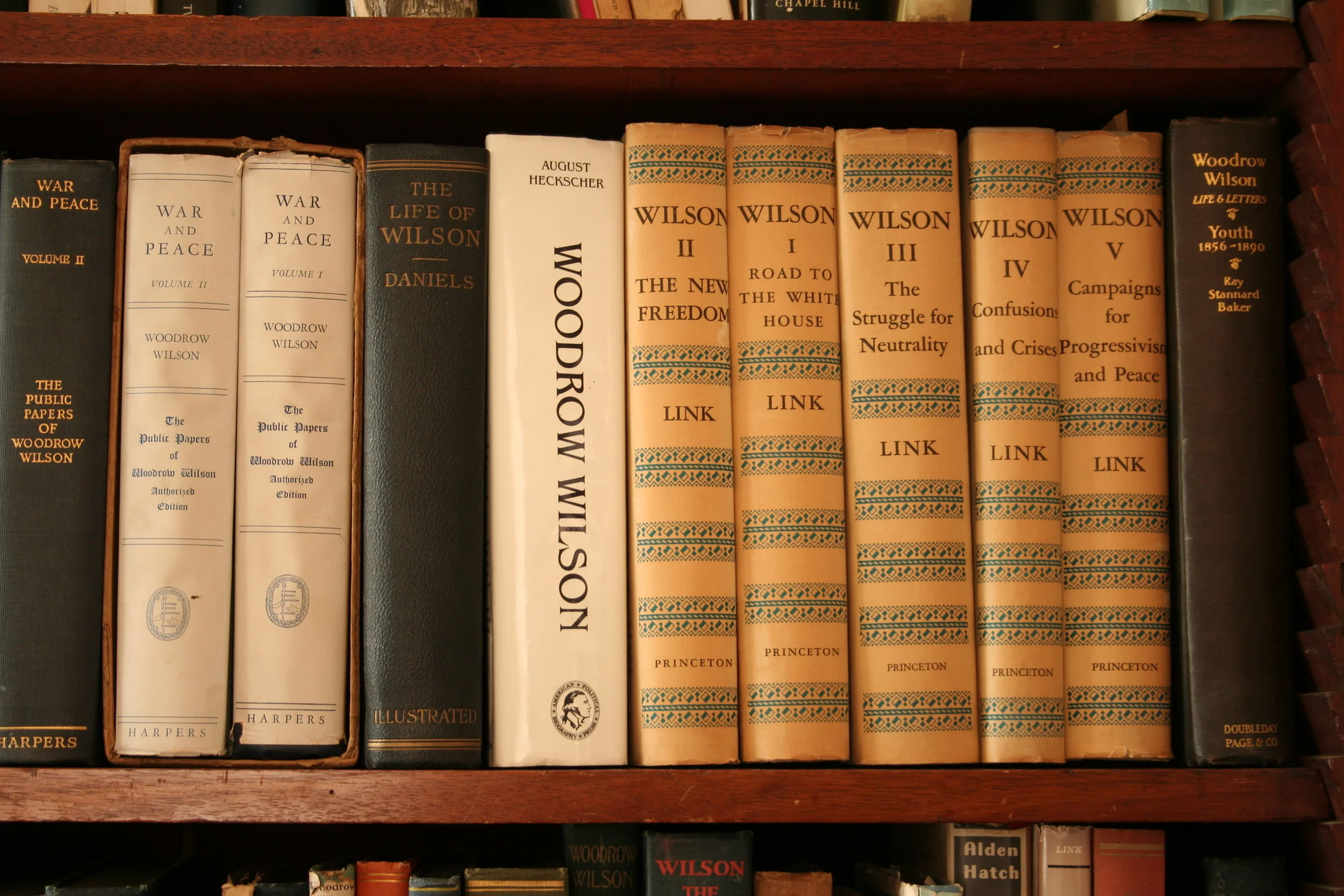Wilson and Shakespeare
/Woodrow Wilson as Hamlet in 1916 copy of the German satyrical magazine, Simplicissimus
In a 1911 essay on the King James Bible, after he had run successfully to become the governor of New Jersey, Woodrow Wilson saw fit to compare Scripture to Shakespeare:
What is it that entrances us when we read or witness a play of Shakespeare? It is the consciousness that this man, this all-observing mind, saw men of every cast and kind as they were in their habits, as they lived. And as passage succeeds passage we seem to see the characters of ourselves and our friends portrayed by this ancient writer, and a play of Shakespeare is just as modern to-day as upon the day it was penned and first enacted.
Shakespeare had been part of Wilson’s life since the early days of his education. During his first year as a student at Princeton, he listed Shakespeare as one the writers he needed to read more of to improve himself. Later class notes and essay plans are filled with references to the playwright. A few years later, the men in his literary club at the law school of the University of Virginia discussed the merits of the plays, as Wilson, the club secretary, recorded in the minutes. And before heading off to study at Johns Hopkins for a PhD in 1883, he wrote up a list of his books that included numerous personal copies of editions of Shakespeare, such as:
William Shakespeare, The Works of Shakespeare, rev. edn., Henry N. Hudson, ed. (6 vols., Boston, 1883). Inscribed: “Woodrow Wilson, 1883.”
William Shakespeare, Hamlet, William J. Rolfe, ed. (New York, 1879). Inscribed: “Thomas W. Wilson.”
While Wilson worked as a professor of government and history at Princeton, in 1899, he took a tour of England with his brother-in-law, describing the itinerary to his wife Ellen as, “probably Cambridge, Bury St. Edmunds, Rugby, Warwick, Oxford:—the Universities with Shakespeare and a little monastic architecture added.” He would later become president of Princeton and would take his wife to see the Shakespeare house on a later tour of England.
When they could, the couple enjoyed Shakespeare’s plays, which can be seen in a letter from his wife to one of their daughters in 1906 that mentions that they had gone to New York, largely to see “Lear” and “Cymbelline,” though Ellen writes that the supporting cast for King Lear was dreadful. Woodrow Wilson’s personal letters frequently mention reading the plays and the sonnets, sometimes aloud to his family.
Clearly, Wilson enjoyed Shakespearean literature. A short note from President Wilson in 1916 to the Shakespeare Tercentenary Committee merely says:
I join with all lovers of great literature in unqualified admiration of the great genius which spoke the human spirit in fuller measure and more authentic tones than any other man of any race or age.
As he was retiring from the White House, President Wilson moved a big part of his personal library to his retirement house on S Street, and the number of copies on the list of books about the writer show that Wilson continued to treasure Shakespeare during his presidency and on into the final years of his life.
Simplicissimus printed during the war for the 1916 anniversary of Shakespeare’s death that is owned by the Folger Library







